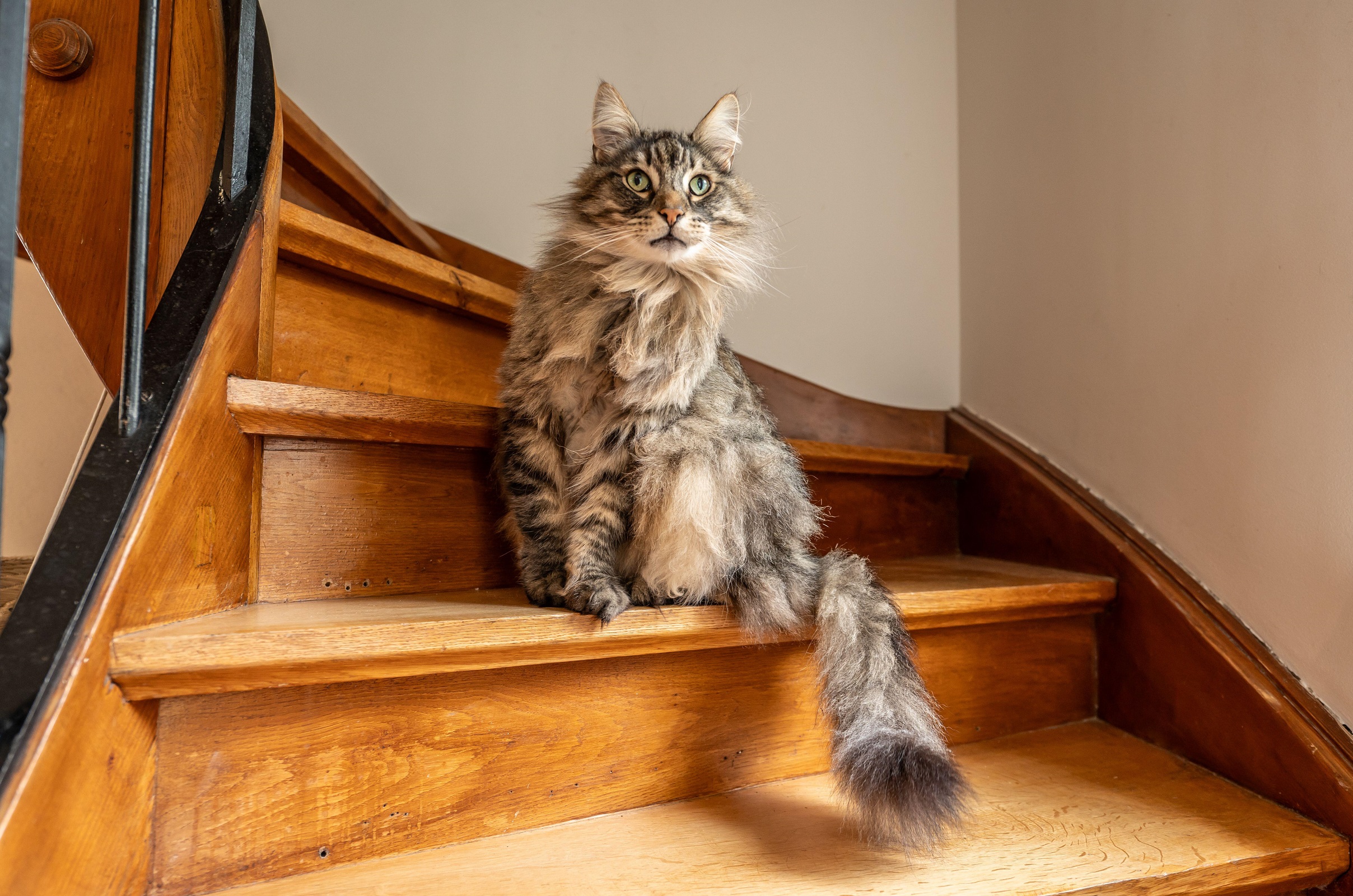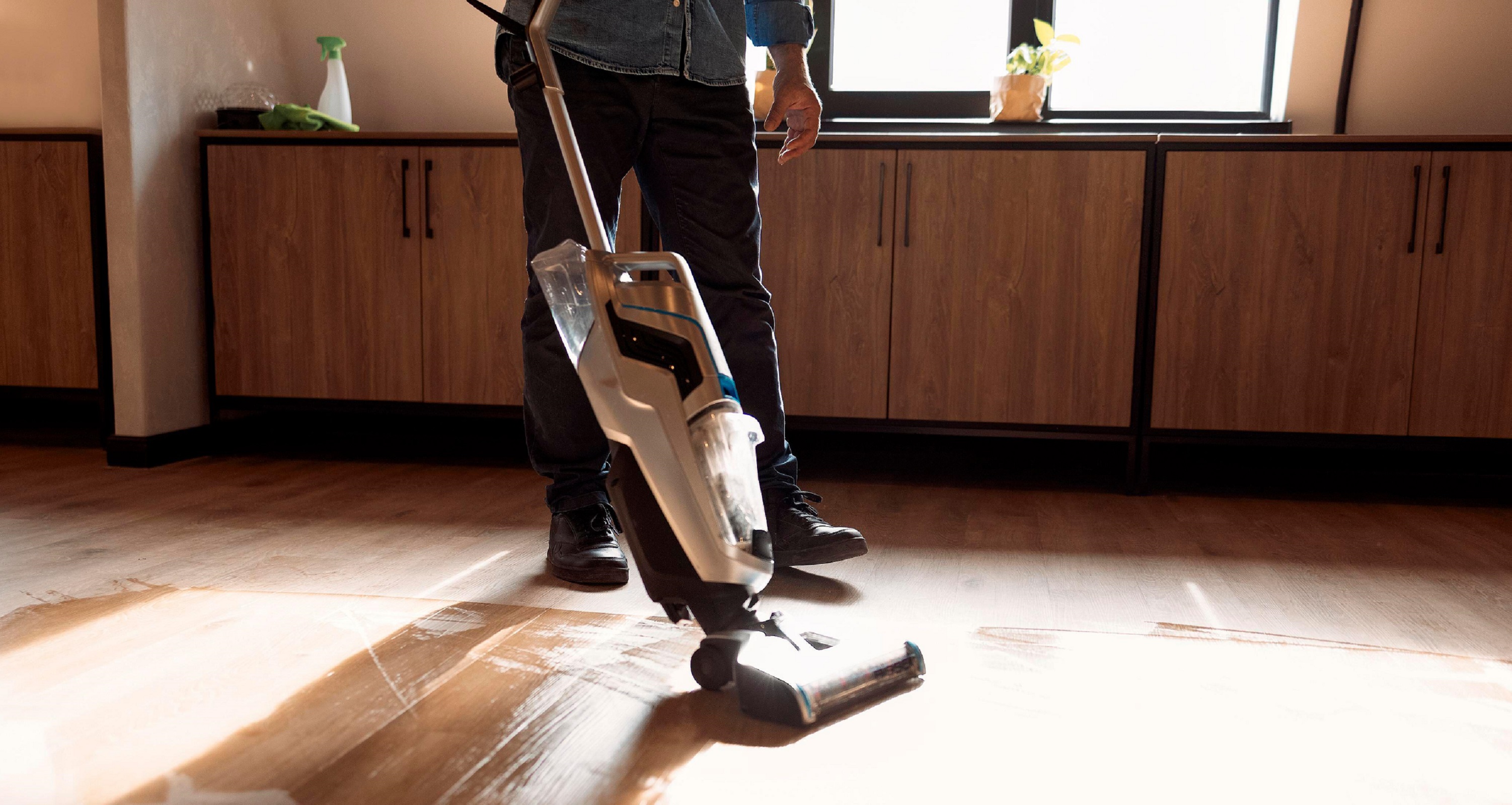Learning exactly which floor cleaners are safe for pets is essential if you’re just starting out on your pet owning journey, or if you need a quick reminder to keep any anxieties at bay. Plenty of us use both appliances and products in order to keep our homes looking fresh, and it’s always worth checking if what you’re buying has that all important pet-friendly stamp of approval.
Whilst using pet-friendly cleaners on your floors is advisable with your pup or cat running around, it’s also important to keep your supplies in a place where inquisitive paws can’t reach them. Make sure to follow the user instructions of any product you pick up, and keep your pooch or cat out of the room while you treat your floors for starters, to minimize any risks.
Learning how to clean harwood floors is a process in itself, so it’s crucial to identify the petsafe cleaners you should use before you get started. Plus, pet-engineered products can also go a long way to helping to clean pet stains on hardwood floors, and prevent those paw-prints from doing permanent damage.
Risks of non pet-safe floor cleaners
There are varying levels of risk when it comes to cleaners that may harm your dog, cat or rabbit. Pets coming into contact with hazardous cleaners can cause irritation to their skin, throats and paws, and cause symptoms such as diarrhoea and vomiting and potentially more dangerous side effects. To prevent this, look for pet-friendly accreditation on products, and always remember to keep the lid or container of products tightly secured, and out of the way of children and pets.
Overuse and inappropriate use of cleaning products can also harm your pets, so be sure to always check labels of use and follow them, including diluting appropriate products. When it comes to cleaning your floors, make sure to keep pets from the area that needs cleaning until you’ve finished up to prevent contact.

Which household floor cleaners are safe for pets?
When it comes to getting hold of pet-safe floor cleaners, there are a few different options you can explore. The first is cleaners that are designated as pet friendly, making them safer than your usual products.
Laura Bronner, granddaughter of Emanuel Bronner, the founder of Dr Bronner’s, explains what makes its cleaning product pet-friendly: “The simplicity that makes Dr. Bronner’s Pure-Castile Soap great for our bodies, also makes it great for pets. You’ve got that blend of saponified plant-based oils—coconut, olive, palm, jojoba, and hemp seed— natural, organic ingredients. And then you’ve got all the benefits of the various essential oils. No junk. No fillers. No irritants or cloying artificial fragrances. Dr Bronner’s contains no synthetic preservatives or foaming agents.
Dr. Bronner’s products are scented only with essential oils, and because of this, I frequently get asked about the impact of essential oils on dogs and other pets. I am glad to hear that people are being mindful of essential oils, because when they’re undiluted, essential oils can be quite potent—which of course is why they’re utilised for various forms of relief. But as with all therapies, the dose makes the poison or the cure. With Dr. Bronner’s Castile soap, the concentration of essential oils is less than 2%. This then gets further diluted by water either in predilutions or during the use. Lastly, soap is a rinse-off product, which means that there is not a long exposure as you would find with a lotion or other leave-in product. Altogether, the low initial concentration, the further dilution, plus the rinse-off mean that there is no concern of problematics level of exposure, and the products are so safe, you can even use them to give your dog a bath if you’d like!”
The second option for any home-remedy fans is to go back to basics by using home staples to clean your floors. Of course, baking soda, vinegar and lemon juice are routinely used around the house by many, with vinegar in particular being a great tonic for hardwood floors.
To use vinegar on your floors, you can opt for one of the following options:
Step 1:
Add half a cup of vinegar to your mopping water and go about your usual mopping schedule, while being sure to let your floors dry thoroughly.
Step 2:
Mix together vinegar and water in a spray bottle for a more concentrated solution, and get up close with stains using a microfiber cloth.
For an even simpler solution, one of the best steam mops that only uses water could be the investment you need to make. With no need to add detergent to many models, you can enjoy a deep clean to your floors without the stress, and enjoy the satisfaction of watching steam lift all of those pesky paw prints.
Prior to steam cleaning you'll need to ensure that you use one of the best vacuum cleaners to free the floor from any pet hair, dirt and other debris.
Alternatively, Eliana Lewis, Brand Co-ordinator for BISSELL® says “The BISSELL CrossWave range of products is great to use on hard floors. There is a specific cleaning solution and brush roll for hardwood floors, to help protect the floor and maintain the natural shine the wood, which is safe for use around pets when used as directed. The BISSELL SpinWave is also a great option for cleaning hardwood floors, as you control the amount of water added to the floor to ensure a thorough clean without adding too much moisture. It is not advisable to use steam cleaners on hardwood floors, as the steam can add too much moisture to the flooring, which can get into any cracks or gaps in the wood and cause issues”.
Which household floor cleaners to avoid for pets
Bleach - Puppies or cats ingesting bleach can be seriously dangerous, and there’s certainly been more than one dog in history who has mistakenly tried to drink from the toilet bowl. Keep risks at bay by closing your toilet seat after use, and keep bleach sealed and away from floor level.
Ammonia - While it’s an effective heavy-duty floor cleaner, ammonia can be harmful to pets. With that in mind, be cautious when using products that contain ammonia, and stick to only cleaning floors when your pets aren’t around.
Chlorine - Another worthwhile floor cleaner that you’ll want to be wary of is chlorine. Though it can work wonders on linoleum and tile, be sure to only use it as directed when your four-legged companions aren't around.

